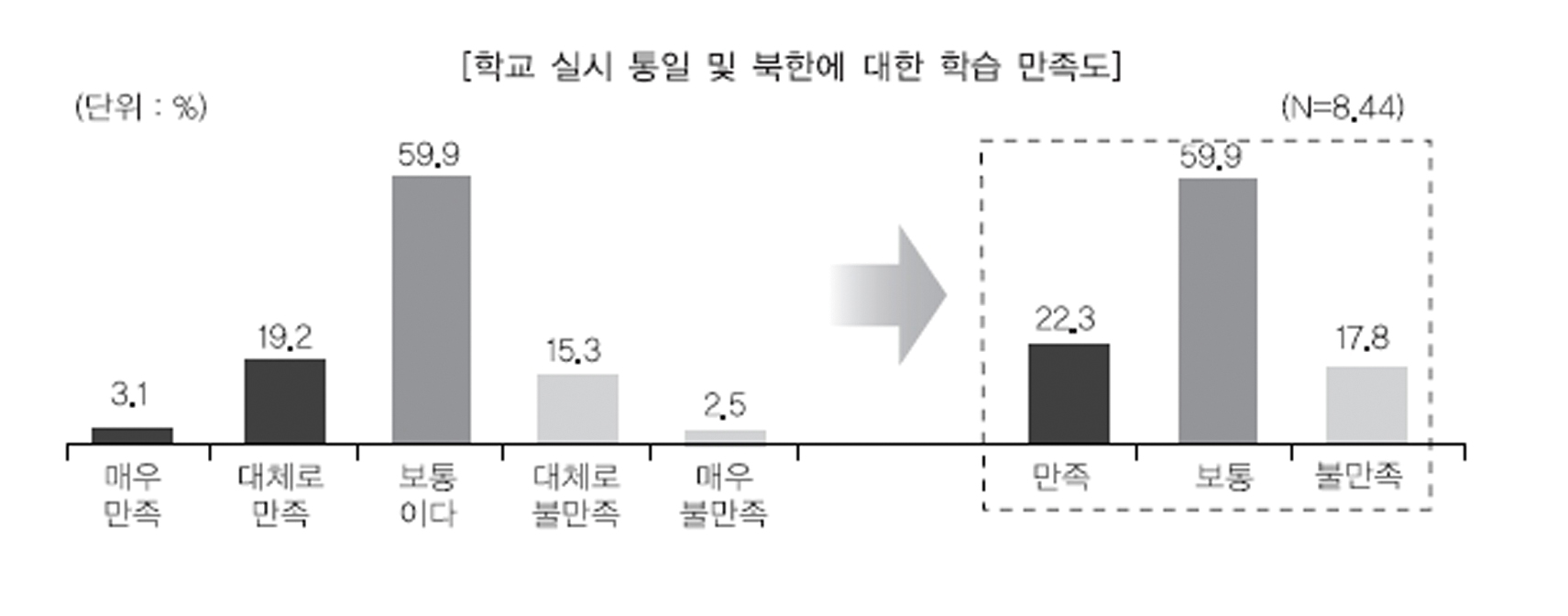
One speculation about the cause of Cheonan's sinking is North Korea′s acts. The news said that the relationship between South Korea and North Korea became worse. Although unity needs continuous attention as a national task, South Koreans are temporarily interested in it after serious incidents occur.
There are a lot of causes that make people indifferent toward unity. One of them is the incomplete role of unification education. There are few opportunities for unity education for university students and citizens. This makes people think reunification is a difficult problem and become unconcerned. Yoo Ho-Yeol, a professor of Department of North Korean Studies at Korea University, said, "There are liberal arts classes about North Korea and unity in some universities. However, these lectures usually focus on interesting information or hot issues, so there are not enough lectures for students to build a well balanced comprehension about North Korea and reunification. Furthermore, for students, there is a lack of lectures and chances for discussion about unity. Sometimes, there are seminars hosted by National Unification Research Centers for students. However, these are usually limited to small events, and the students participation rate is low."
In fact, the lack of unity education is not limited to university students. In 2008, 10 hours for elementary school students, 12 hours for middle school students and 17 hours for high school students were allotted per year. However, when investigation was done by the Education Center for Unification, the average time for education was about 6.5 hours per year. Even the allotted time is scarcely obeyed in schools. This is a problem because even the allotted time is not enough to build a correct view of reunification.
In addition to the above external factors, the contents of unity education also have some shortages. Most of the contents focus on social structure, system and policy. This is an important part of unity education for understanding North Korea, but we also need sociocultural aspects for well balanced comprehension. Through the sociocultural education, we can understand North Koreans well, reduce our differences and learn about the needs of reunification.
To sum up, the right education of unity is necessity for decreasing the South Korean's sense of distance about unity. For this, there should be many chances to learn why reunification is necessary and how to prepare for it by devoting more time to education. In addition to this, we should develop various and fresh teaching methods and contents. Before anything else, educators should explain reunification by linking it with people's real lives, like the separated families. Unity can not be achieved in a short time, so we have to prepare for it in various ways. I hope that through proper education, more people will become interested in reunification.


 All
All






 이수진
이수진











